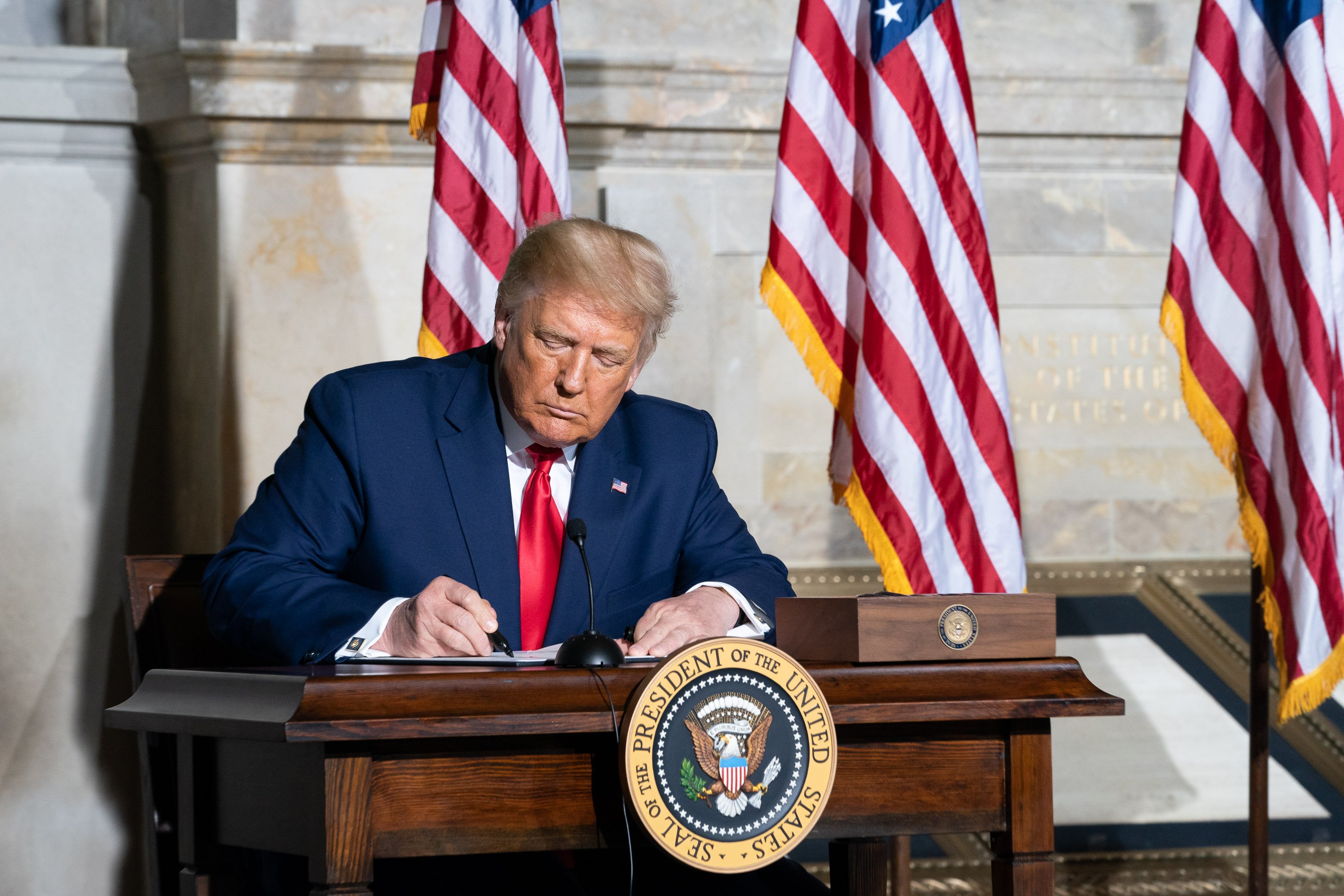These days there doesn't seem to be much in the way of economic news that can stop the ascent of the broad-based S&P 500 (^GSPC 0.51%). With good reason, the S&P 500 has eclipsed multiple new all-time highs this year as the unemployment picture continues to improve, housing prices and sales firm, and financial institutions regain their health. By all standards, the recovery from our worst recession in seven decades is coming along quite nicely.
Not everyone agrees, of course, as we discussed yesterday: Pessimists point to heavy cost-cutting and the imminent end of the Federal Reserve's monetary-easing program as reasons why this rally may be on its last leg.
Regardless of what camp you find yourself in, pessimists near and far have kept their distance from a select group of S&P 500 components -- the five most loved S&P 500 stocks, if you will. No matter how much skepticism has built around the market, these five companies possess the least amount of short-sellers based on shares outstanding. Not only is that a potentially bullish sign that the majority of shareholders expect these five stocks to rise, but it could also help teach us a lesson about these companies that we could apply to our own future investments.
Here are the S&P 500's five most loved stocks:
|
Company |
Short Interest as a % of Shares Outstanding |
|---|---|
|
Berkshire Hathaway (NYSE: BRK-B) |
0% |
|
Abbott Laboratories (ABT 0.79%) |
0.55% |
|
Philip Morris International (PM +1.85%) |
0.6% |
|
Coca-Cola (KO +0.54%) |
0.6% |
|
Loews |
0.61% |
Source: S&P Capital IQ.
Berkshire Hathaway
Why are short-sellers avoiding Berkshire Hathaway?
- Perhaps the question I should be asking is, "Why wouldn't they?" There really isn't any incentive in it for short-sellers to bet against Warren Buffett's highly diverse conglomerate, which will span 58 separate subsidiaries once it encompasses electric utility NV Energy into the fold. The unique aspect of Berkshire Hathaway is that many of its businesses are based on inelastic goods that remain in high demand even if the economy turns south. To that end, Buffett has done a fantastic job of buffering against downside action in the economy and has built his holding company around nearly five dozen brands that help grow its book value.
Do investors have a reason to worry?
- With the type of diversification Buffett has built into Berkshire Hathaway's portfolio over the past five decades, I see little reason to worry. As with any company, a recession does have the potential to knock around Berkshire's share price. However, over the long run this portfolio of companies is designed to improve Berkshire's book value and deliver steady wealth-appreciation to shareholders.
Abbott Laboratories
Why are short-sellers avoiding Abbott Laboratories?
- There are a number of reasons why pessimists have wrapped yellow caution tape around Abbott Labs. To begin with, the split between Abbott and AbbVie into two separate companies -- with AbbVie becoming the branded-drug development wing and Abbott retaining the generic pharmaceuticals, diagnostics, and medical-device segment -- made it easier for shareholders to understand how each company makes money, thus enhancing shareholder value through transparency. Further, an aging Baby Boomer population that's likely to demand more diagnostic care and devices needs bodes well for Abbott's future. Finally, a low beta of 0.5 tends to repel most short-sellers who are looking for a quick buck.
Do investors have a reason to worry?
- Based on Abbott's second-quarter earnings report released last month, I would give a resounding "No!" Abbott's EPS came in well ahead of its own previous guidance, and the company stuck to its previous full-year forecast and added a $3 billion share buyback as icing on the cake. The key to Abbott's success is its emerging-market sales, which rose by 13% in the latest quarter. If Abbott can continue to diversify its sales to overseas markets, there's no reason it can't head even higher.

Source: Arte & Fotografia.
Philip Morris International
Why are short-sellers avoiding Philip Morris International?
- Not to sound like a broken record here, but with Philip Morris International we get a lot of the same qualities described in the previous two companies. Philip Morris International is a global tobacco-products producer, so it commands excellent pricing power in all of the regions it operates while spreading out the governmental risk of tighter smoking controls that plague the United States tobacco industry. In addition, it pays out a handsome yield nearing 4% and has a beta well below one. There's no real incentive for short-sellers to pile into a company that's globally diversified and supplies an addictive but legal substance.
Do investors have a reason to worry?
- As in the previous cases, I don't believe so. In fact, if you're going to invest in the tobacco sector, Philip Morris appears to be the hands-down best play. It has excellent geographic diversity and has shown on countless occasions that it can boost prices to make up for currency or volume shortfalls. In its recently reported second quarter, we saw this pricing power in action: Cigarette shipment volume dipped 2.6% excluding the Philippines, but net revenue excluding negative currency translation actually rose 0.5% because of higher cigarette prices. So long as Philip Morris International has solid pricing power, short-sellers had better keep their distance.

Source: Sean, Flickr.
Coca-Cola
Why are short-sellers avoiding Coca-Cola?
- I knew it was just a matter of time before we finally ran into some overlap, but beverage behemoth Coca-Cola has managed to find its way into the most loved lists for both the Dow Jones Industrial Average and the S&P 500. As I noted earlier this week, one of the primary reasons short-sellers avoid Coca-Cola is its geographic diversity; it operates in all but two countries around the globe. Coca-Cola is the world's most valuable brand, according to Interbrand, and it has one of the most widely recognized products, so pessimists aren't going to see a huge fluctuation in bottom-line results, even in a recession.
Do investors have a reason to worry?
- As you may have guessed, my investment thesis on Coca-Cola hasn't changed in two days, and it may not change for another decade or longer. With roughly half of all billion-dollar non-alcoholic beverages in its portfolio and an incredibly predictable level of cash flow, Coke doesn't give short-sellers much to latch on to. Even though soda consumption in the U.S. declined last quarter, Coke still managed to deliver volume gains on a global basis thanks to emerging-market volume growth. I don't see a viable reason to bet against Coca-Cola.
Loews
Why are short-sellers avoiding Loews?
- Not to be confused with the do-it-yourself improvement store, this Loews is another conglomerate that's primarily involved in property and casualty insurance, but it also has energy and hotel operations. The big reason I believe short-sellers have no interest in Loews has to do with the impressive cash flow that its P&C insurance business creates. Even if a catastrophe loss strikes, it gives Loews' subsidiaries ample justification to boost premiums now to cover similar losses later. In essence, the insurance business is destined to make money so long as the management team stays fiscally responsible.
Do investors have a reason to worry?
- To make this a perfect five-for-five, no, I don't feel investors have many reasons to be concerned at the moment. In its second-quarter report Loews reported a nearly fivefold increase in net income compared to last year, with revenue rising 11% to $3.74 billion. Not having a slew of one-time charges this go-around sure helped, but it also points to Loews' strengthening insurance business. Furthermore, with interest rates bound to head higher at some point after the Fed decides to pare back its monthly bond-buying program, Loews' insurance investment portfolio is bound to get a boost, as a good portion of its investments are in U.S. bonds.










